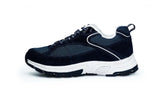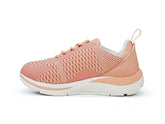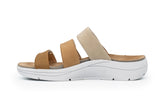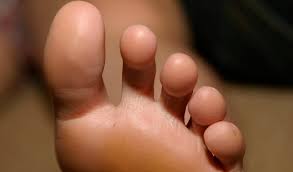Choosing the Right Shoes for Healthy Toes
Finding the perfect pair of shoes can be challenging, especially when you are trying to prioritize foot health. Whether you suffer from arthritis, diabetes, or simply have wide toes, selecting the right shoes can make a world of difference. In this article, we will explore the importance of choosing the right footwear and guide you through the process of finding shoes that are not only comfortable but also promote healthy toes.
 Understanding the Importance of Proper Footwear
Understanding the Importance of Proper Footwear
Shoes are more than just a fashion statement; they play a crucial role in maintaining the health of your feet. Ill-fitting shoes can lead to a variety of foot problems, from blisters and calluses to more serious conditions like bunions and hammertoes. Therefore, it is essential to choose shoes that support your feet's natural shape and provide adequate space for your toes.
The Impact of Poorly Fitting Shoes
Wearing shoes that do not fit properly can cause a range of issues. Shoes that are too tight can compress your toes, leading to pain and discomfort. Over time, this can result in deformities such as bunions, which are painful bony bumps that form on the joint at the base of the big toe.
On the other hand, shoes that are too loose can cause your feet to slide around, resulting in blisters and calluses. It is crucial to find a balance and choose shoes that fit snugly but allow enough room for your toes to move freely.
Key Features to Look for in Healthy Shoes
When shopping for shoes that promote healthy toes, there are specific features you should look for. These features will help ensure that your shoes provide the necessary support and comfort.
Wide Toe Box
A wide toe box is essential for allowing your toes to spread naturally and comfortably. Shoes with a narrow toe box can squeeze your toes together, leading to discomfort and long-term foot issues. Look for shoes labeled as having a wide toe box, especially if you have wider feet or suffer from conditions like bunions.
 Orthopaedic Support
Orthopaedic Support
Orthopaedic shoes are designed to provide superior support and cushioning for your feet. They often have features like arch support, heel stabilization, and shock absorption, which are beneficial for people with foot problems such as arthritis or plantar fasciitis. Investing in orthopaedic shoes can help alleviate pain and prevent further foot complications.
Proper Cushioning
Cushioning is crucial for absorbing impact and reducing stress on your feet. Shoes with adequate cushioning can help prevent conditions like plantar fasciitis and provide comfort for those with arthritis. Look for shoes with cushioned insoles and midsoles for added support.
Choosing Shoes for Specific Foot Conditions
Different foot conditions require different types of footwear. Here’s a closer look at how to choose the right shoes for various foot health concerns.
Shoes for Arthritis
Arthritis can cause joint pain and inflammation, making it essential to choose shoes that provide both comfort and support. Look for shoes with soft, flexible materials that reduce pressure on your joints. Additionally, shoes with a low heel and ample cushioning can help alleviate pain associated with arthritis.
Diabetic Shoes
For individuals with diabetes, foot care is of utmost importance. Diabetic shoes are designed to reduce the risk of foot injuries and ulcers by providing extra depth and a seamless interior. These features help prevent friction and irritation, which can lead to sores and infections. Always opt for shoes with a wide toe box and good arch support.
Shoes for Wide Feet
People with wide feet often struggle to find shoes that fit comfortably. Shoes with a wide toe box and a roomy fit are ideal for wide feet. Avoid shoes with pointed toes or narrow designs, as they can cause discomfort and exacerbate foot problems.
Consider Orthotics
If you have specific foot conditions or require additional support, consider investing in orthotics. These are specially designed shoe inserts that provide personalized support and cushioning for your feet. They can be used in conjunction with orthopaedic shoes for maximum comfort and foot health.
Conclusion
Selecting the right shoes is crucial for maintaining healthy toes and overall foot health. By understanding the features to look for and considering your specific foot needs, you can find shoes that provide comfort, support, and protection. Remember to prioritize a wide toe box, orthopaedic support, and proper cushioning when shopping for shoes. With the right footwear, you can prevent foot problems and enjoy pain-free walking every day.








